Questions without answers
As I prepare to transition back to the United States, I'm trying to imagine how to communicate about my experience
I’m sitting on the front porch of my friend’s Jerusalem apartment, just as I have on many weekends off during Hineinu. Only now, I can’t quite comprehend that tomorrow I will not get in a car and drive back down to Masafer Yatta. I somehow can’t imagine being anywhere else, and yet I’m going home. I’m having many feelings about going back to the US, but amongst them, the distinct feeling of dread at the question, “So, how was it?”
How do I count how many times my belly ached from laughing? How do I explain that with every tislam idek, every time I blessed the hands that poured so many cups of tea, I was blessing the warmth of openheartedness I’ve experienced every minute here? How can I put into words what it felt like when I sat down to Iftar and my friend said to me “we prepared eggplant fateh just for you, I know it’s your favorite”? How do I recount why I pulled the car over on the highway one afternoon, so overwhelmed by the beauty of this land that I was completely overcome?
Do I tell them that I find myself scrolling through my calendar trying to find the soonest possible pocket of time that I can come back? Do I tell how I discovered a new part of myself in these months, a part that just makes sense in this place, in this work, in these friendships? Do I tell them of my gnawing fear that that part of myself will just never make sense anywhere else, that I won't totally make sense anywhere else? Do I acknowledge that I know this sounds ridiculous? Is it possible to explain just how much every aspect of being here is uniquely and profoundly ridiculous?
As I look ahead to going home, I feel the immense burden of responsibility. To tell the stories, to make my community understand the depth of love, pain, and camaraderie I’ve been so immersed in. How do I make them feel the fire of urgency and resolve I feel? And which stories do I tell?
I know the stories of oppression and occupation are essential to galvanizing people into action. I’ve experienced and witnessed more violence in these 3 months than most of my US community — God willing — will likely ever know. Do I recount the stories of violence – of home demolitions, stonings, beatings, kidnappings? If I do, will people understand what we are fighting against? Do I recount the stories of communal meals, of hospitality beyond belief, of jokes in the most unlikely moments, of late night conversations that have shaken my understanding of human capacity for compassion? If I do, will people understand what we are fighting for?
Do I recount how these experiences affected me personally? Do I show them the scar on my arm where a soldier pushed me into barbed wire during a brawl at a home demolition? Do I tell them how still, 10 times a day, I find myself running my fingers through my hair, feeling for shards of glass, just as I did the night a gang of settlers stoned our car with us stuck inside, glass raining down on our heads, the army blocking our only route of escape? If I do tell these stories, will people care more, give more, fight more? But this land is not mine, and this is not about me, I am only an accomplice, who am I to put myself in the narrative?
Do I tell the stories of the Palestinian people I’ve come to love? Do I try to capture the strength with which people stared down the barrel of a soldier's loaded rifle with measured resolve, unwavering in their nonviolent discipline? Can I even capture what it takes to go into the house after the army leaves the village for the fifth time in two days, grab a young child shaking with fear, look her in the eyes, smile, and gently say ‘kulshi tamam habibti, rahu, rahu’? Do I even understand these things? And who am I to tell these stories? Though I feel them in every fiber of my being, they are not mine.
And maybe worse yet, what if people say nothing at all? Does this mean they do not want to know, or just that they don't know what to ask? Do they understand how this place, these people, these stories, consume me? If they understood how unbelievably important it all is, would they then ask? If I shout it from the rooftops, will someone – anyone – listen?
These questions are overwhelming. Inshallah, with time, and much reflection, I can only hope that I will learn how to imperfectly bring these stories home.
Until then, I return to what feels most accessible right now—the sounds, the sights, the textures of daily life that have etched themselves into me, the fragments I can hold onto as I begin to carry this place home. Only in these can I let myself think about that which I now feel deeply: This is not just a place, not just an idea, it’s a conviction, a piece of my heart, a pledge for the future. Only in the specificity of these observations does the past 3 months of experience feel like my own:
Children’s laughter, children’s screams, babies’ cries
The ping of my phone, the dread of “settler attack!” from each new message
Sheep, goats, chickens, cats, So. Many. Cats.
Constant noise in the village, except for 4am suhoor, even the rooster sleeps then. A deafening silence broken only by the incantations of the call to prayer
War planes, drones, bombs, gun shots, stun grenades
The click of lighters and the crackling flame of so many cigarettes
The thud of stones thrown at cars, houses, bodies
Rolling hills dotted with houses, houses which may be demolished tomorrow, next month, next year
Impossibly sweet tea, served without ask, a dozen times a day. Strong coffee in impossibly tiny paper cups
Sweeping wadis, fields of bright yellow mustard, fiery red poppies, spiky green aqub, grasses turning beige in the late spring sun
Crunch of metal, smash of glass, bursting gush of water tanks, under the crush of demolition forces. Someone cries, someone prays.
The unimaginably beautiful land, people, time.
—
As I drove away for the last time, I silently prayed that these people, these homes, this land, will survive until I come back. Will they?


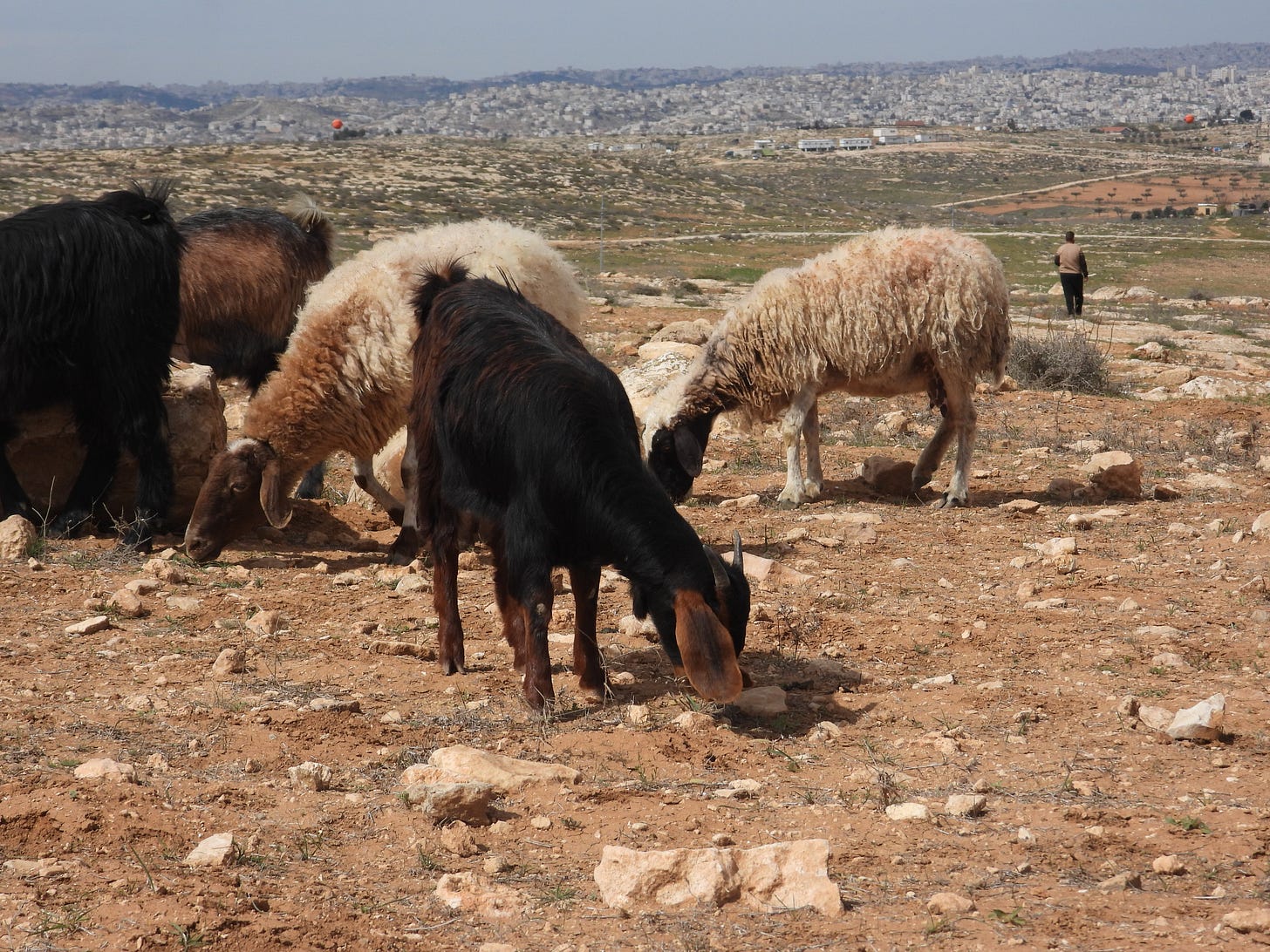
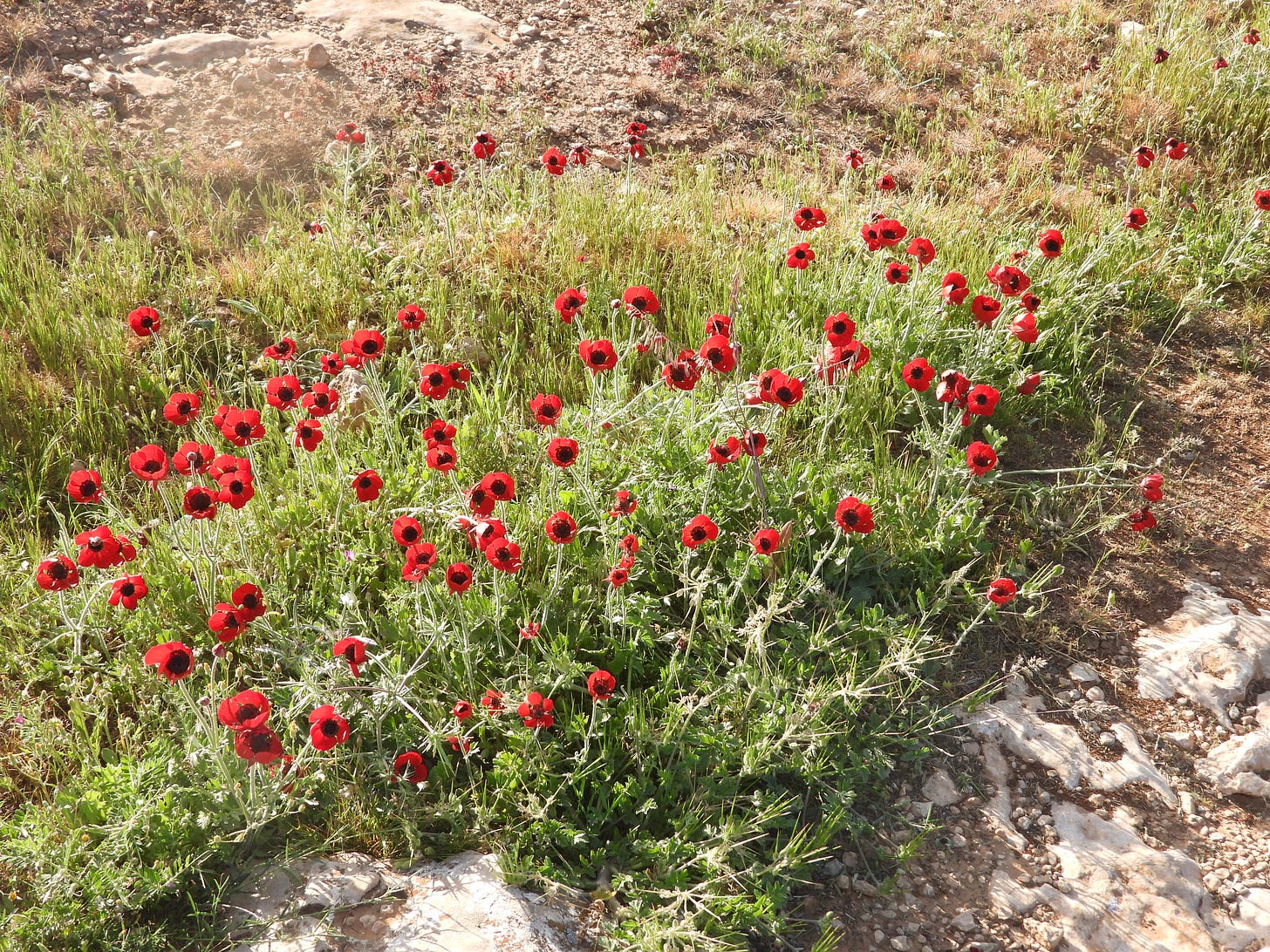
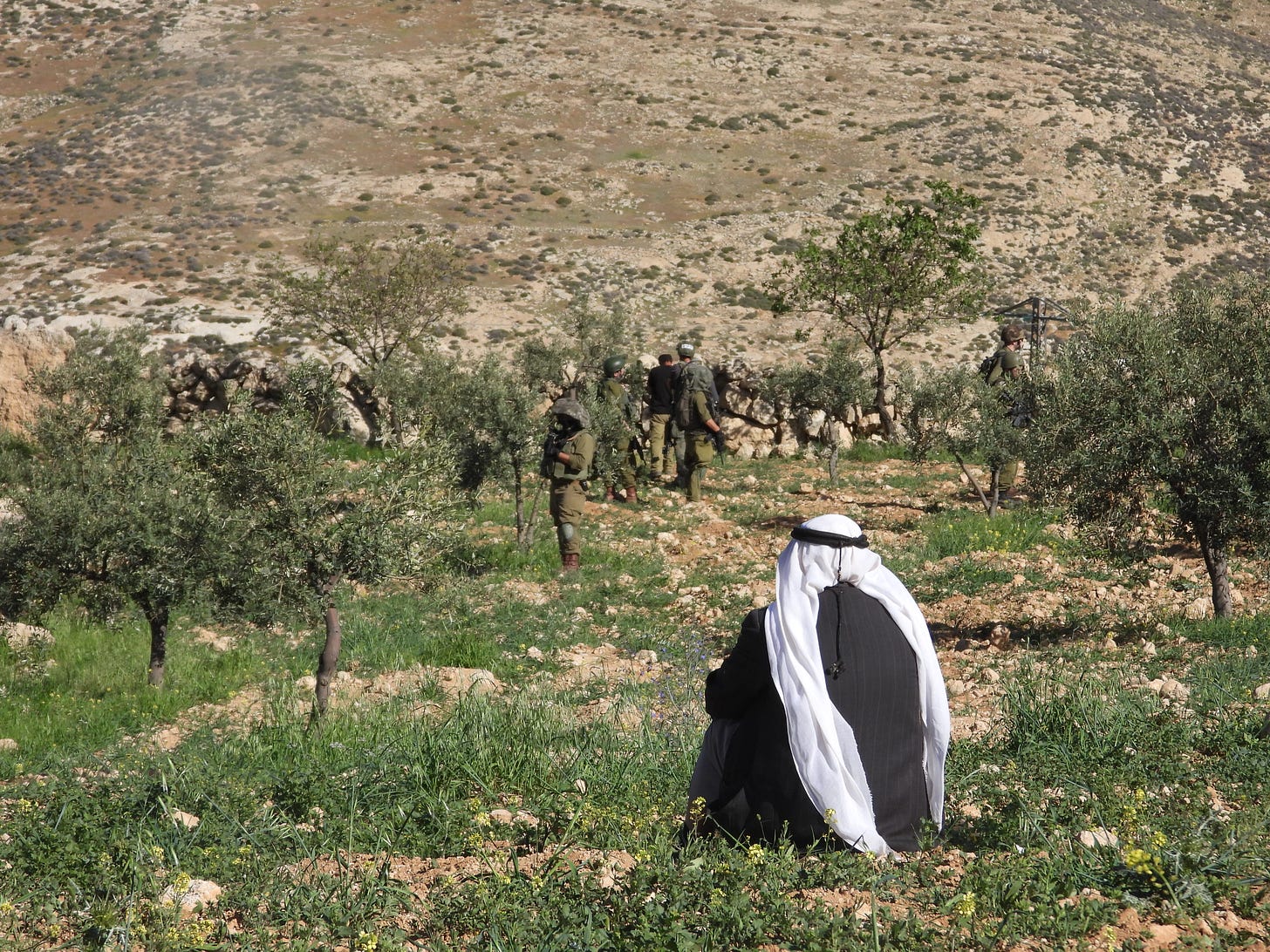
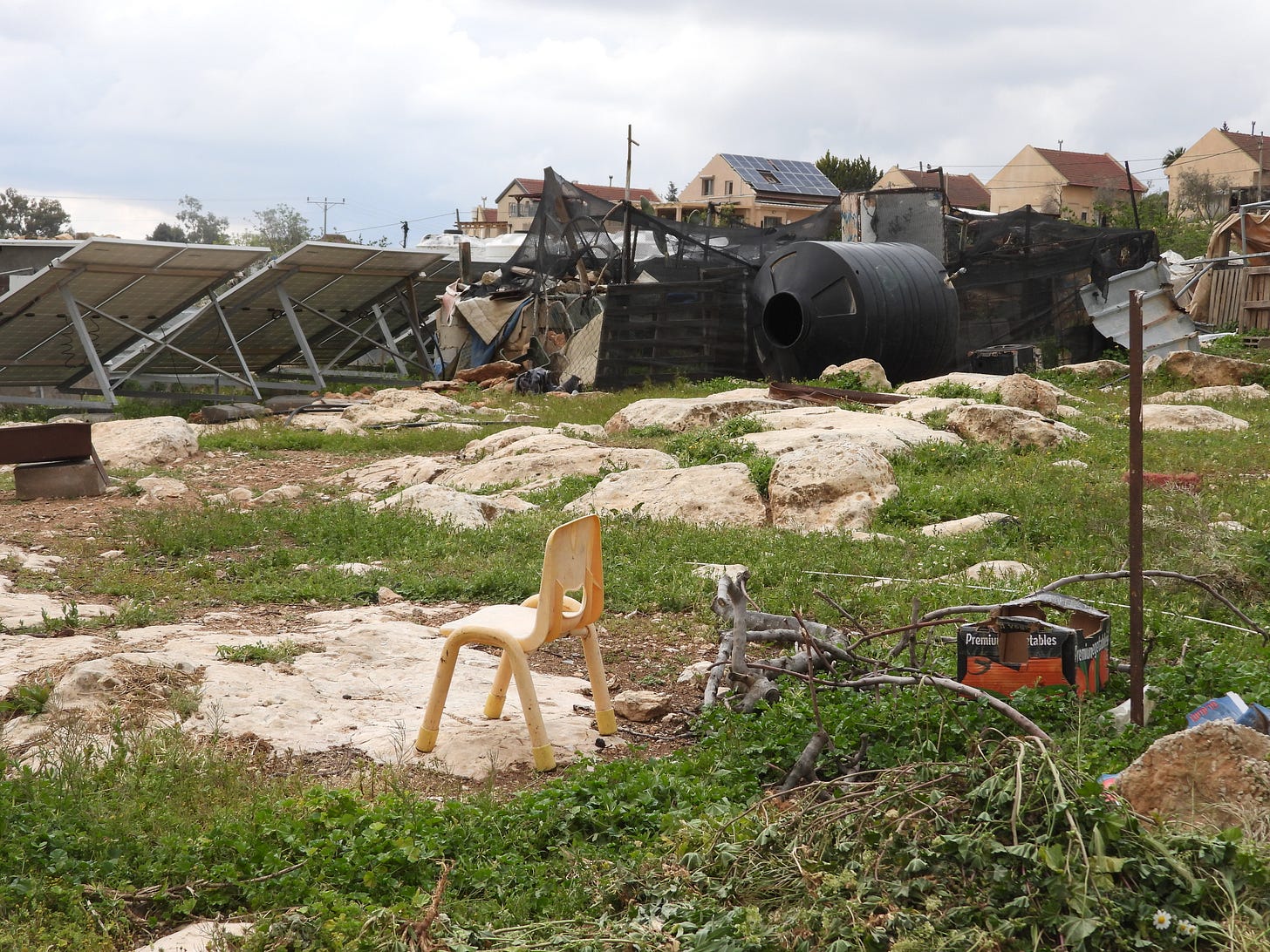
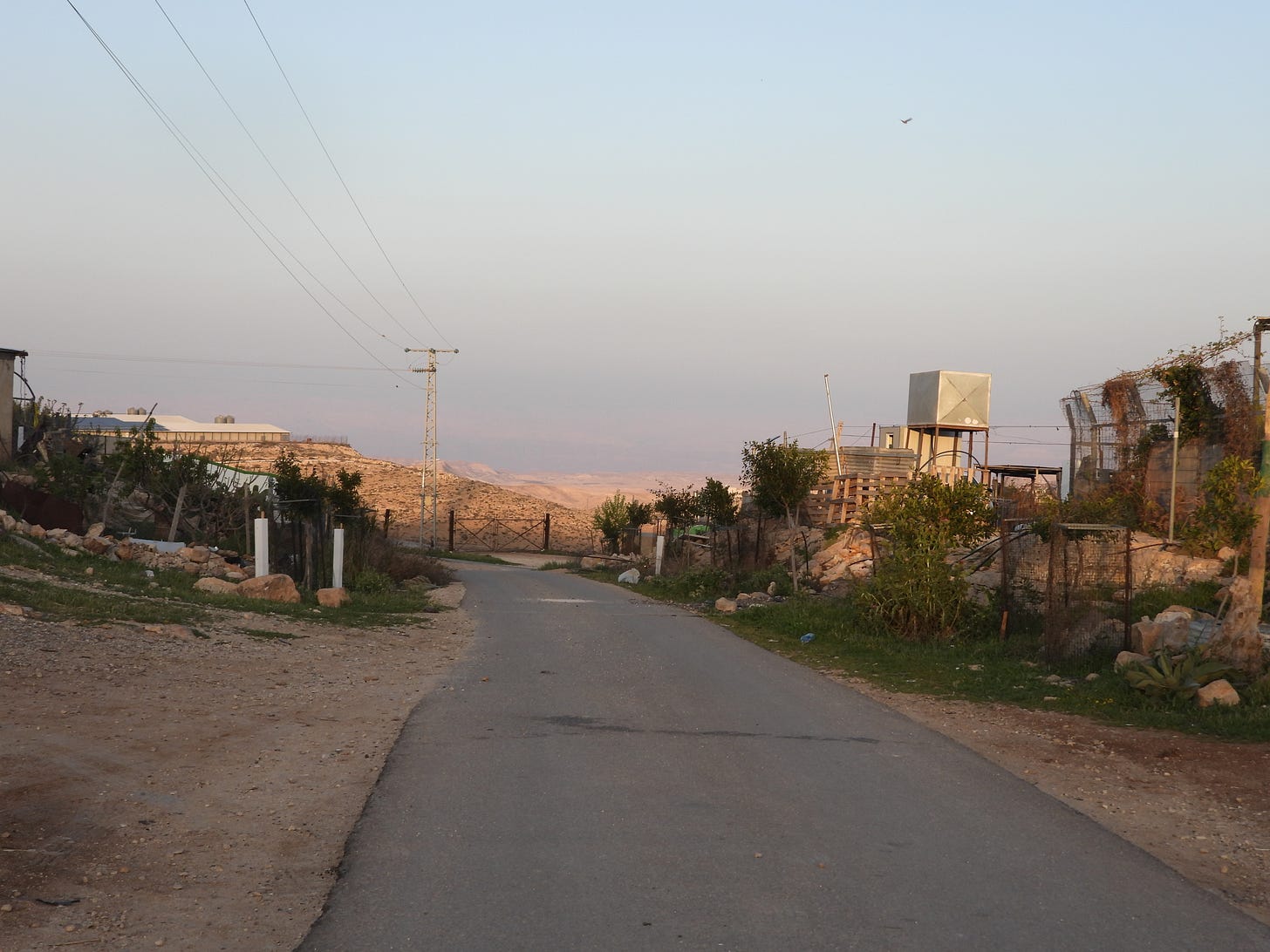
Raviv, you have opened my eyes to the truth as no one ever has. I am eternally grateful.
Beautifully written Raviv!